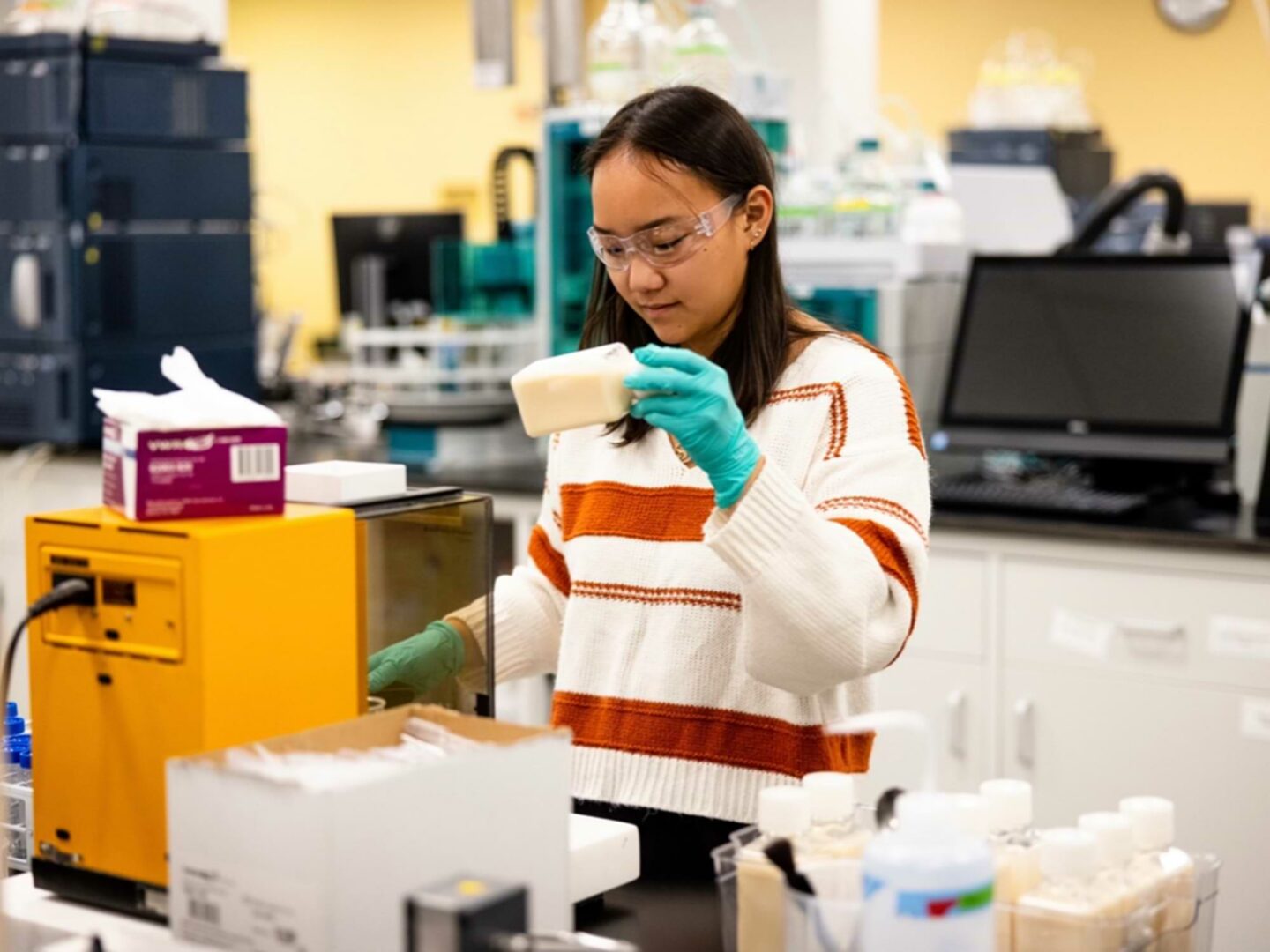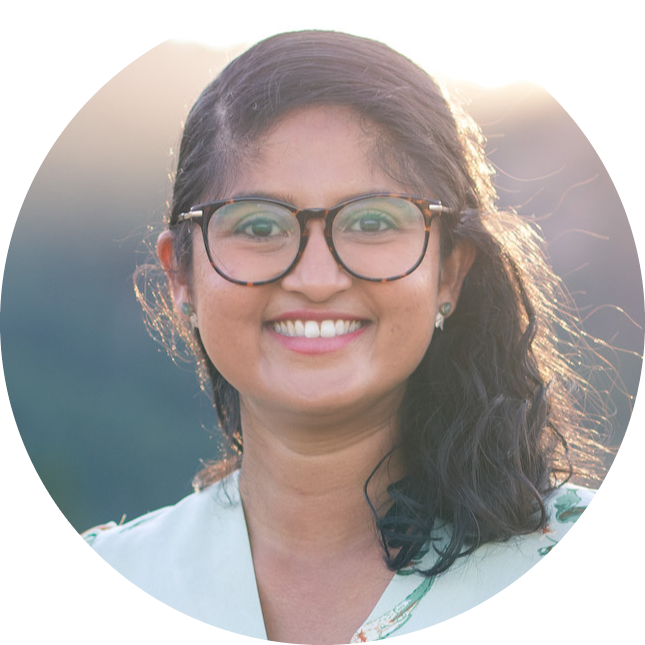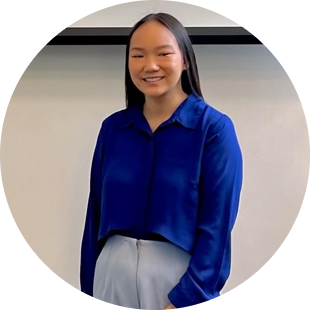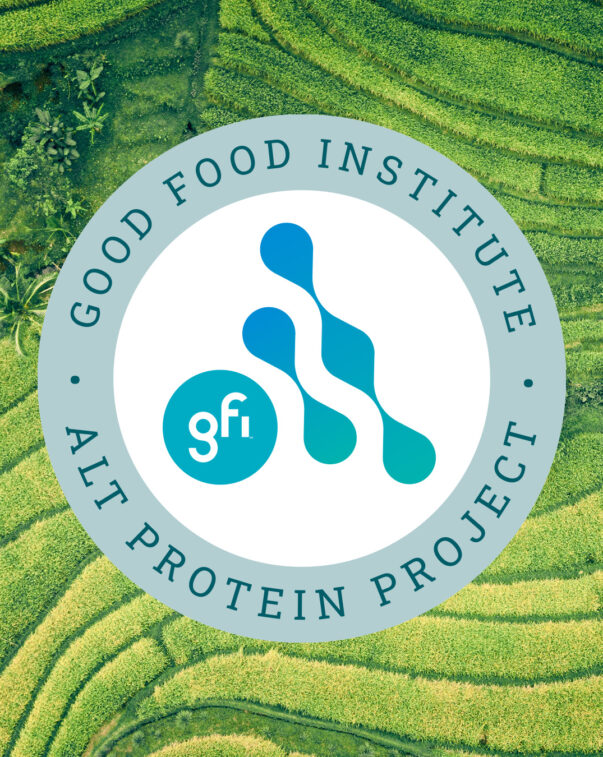Alumni of the Alt Protein Project: where are they now?

Making an impact through alternative proteins
Gen Zs and millennials are choosing social impact careers in record numbers, many driven by concerns about the changing climate. This desire to build a career that addresses the climate crisis, amongst other key causes like animal welfare, food insecurity, and antimicrobial resistance, is why many young people are finding their way to the alternative protein field. University students are faced with several questions: What skills do I need? Who should I be networking with? How can I do something meaningful as a student right now? Where do I find others who care about this too?
All of these questions are addressed through the Alt Protein Project (APP). This global community, focused on empowering undergraduate and graduate students to step into their role as changemakers on campus, is one way for motivated students to find a community of like-minded individuals trying to make a positive impact through their careers. Since its establishment in 2020, the APP has graduated more than 100 alumni, many of whom have gone on to work in the alternative protein field.
That feeling of landing a job at your dream company or receiving an acceptance letter to a graduate program you’re really excited about is unmatched. It’s extra special when it’s at a company or organization you’ve been eyeing for a while, networking with through LinkedIn and conferences, or even interning with over the summer, as Jordan Allen did when she interned at Ingredion in 2022 and accepted a full-time position the following year. Many APP alumni know this feeling quite well, given that early engagement with companies, organizations, academic labs, and research institutions in the alternative protein field is a key part of the APP experience.
During their time in the APP, student leaders gain skills including but not limited to, networking, public speaking, science communication, community-building, decision-making, and scientific research, all while learning about the latest technical developments and ins and outs of the industry. The APP is also a perfect way for student leaders to explore the vast career opportunities that are available to them by closely interacting with a wide variety of alt protein professionals, including scientists, engineers, researchers, entrepreneurs, chefs, and thought leaders. Given that student leaders are focusing on five core objectives (education, research, innovation, community, and awareness) through their work in the APP, it naturally leads to students facilitating workshops, working with companies to offer product taste tests on campus, building their local alt protein ecosystems, hosting regional conferences, hosting industry professionals as guest lecturers and speakers for university courses, and so much more. Through these unique experiences, student leaders gain greater clarity about what they want to do after graduation and better understand the roles they can play within the world of alt proteins.
Insights from Varsha Rao and Jordan Allen
Varsha Rao and Jordan Allen, previous presidents of the Alt Protein Project chapters at the University of Colorado at Boulder and Virginia Tech, respectively, are shining examples of the next generation of alt protein leaders who have recently entered the workforce. In my conversations with each alumni, we discussed the decisions and thought processes that helped them get from one step in their career to the next. The vast difference in their stories demonstrates that there is no singular path to building a career in the alt protein field and industry.

Varsha Rao
“Engineers need to understand the fundamental science and the ‘why’ questions of pure chemistry and math, but it’s really about the impact of how we can use this to create something new like a product or an efficient process. And I think that is what drove me to pick engineering versus something that was pure science. I quickly realized this application side is what I needed to make that type of impact for my own fulfillment.”
Varsha Rao reflected on her priorities when deciding between pursuing a degree in the natural sciences versus engineering.
This realization led her to pursue a bachelor of science in chemical and biological engineering at Montana State University-Bozeman. During her undergraduate studies, Varsha became very involved in research which informed her next decision to pursue graduate school rather than jumping straight into industry. When considering where to apply and what degree to study, she prioritized mentorship.
“It was more about the professors who I thought would be good mentors for me and then thinking more about the project. So I actually didn’t really focus on the degree itself as much. Even though my graduate degree is in chemical engineering, all of my research is tissue engineering and focuses more on biomaterials and regenerative medicine.”
While working on her PhD, Varsha co-founded the Alt Protein Project at CU Boulder. Varsha reflected on one of her proudest accomplishments while leading the chapter.
“We organized a research symposium so we could learn about what each other was working on. Members of the Alt Protein Project presented their research – from marketing research to plant-based and cultivated research. We had discussion groups which allowed people to have organic conversations and I think that was so unique and benefited us.”
Varsha highlighted key aspects of the program: exchanging knowledge freely and learning together. The Alt Protein Project welcomes undergraduate and graduate students from a vast array of disciplines and backgrounds because interdisciplinarity and diversity are essential ingredients to developing effective teams and a thriving industry. Another important skill to building a strong team is public speaking and science communication, a skill that Varsha developed greater confidence in through hosting events and talking about her research beyond the lab.
“Most of our events were open to the public. It’s very different speaking to a room of people with educational experiences and backgrounds that are similar to yours compared to the general public. As soon as I shared where I work and what I do, I started getting lots of questions…so I learned from watching how others describe what they do and then pushed myself to do that at my own events. I think that really shaped how I think about ‘why am I doing this?’ and just getting the right language to explain it to people. Looking back, that was really, really helpful.”
Varsha is currently an Associate Scientist on the cell integration team at Wildtype, an alternative seafood company making cultivated seafood, starting with sushi-grade salmon based in San Francisco, California. While the day-to-day work of her current role in the industry shares some similarities to her Ph.D. years, Varsha explained how these two chapters of her career journey differ.
“My team works really closely with the product development team. So we’re thinking about scale and what will actually go through the pipeline, but we’re also still doing some early research which is creative and I really enjoy that. It’s the right mix of being in an industry affecting the product and still getting to do cool, random side projects! The biggest difference is that the projects I do here [at Wildtype] are way more interdisciplinary and we’re kind of interdependent on everyone, versus my PhD was my own project where we had some people help us but you’re really individual and you have a lot of control over it. There’s more collaboration that happens in my work now.”
With some years of working in the industry under her belt, Varsha has some advice for others looking to enter the field.
“A job is never going to be 100% exactly what you want and so you want to land in the upper quartile of happiness. Writing down the things that you really enjoy can help a lot. For me, it was small things…I really enjoyed having lunch with my coworkers and being in the lab where it’s a mix of ‘thinking and doing’ type of work. Once you have that down, you feel competent about the type of job you would like to have. It made it a lot easier for me because there are a bunch of different types of roles in this industry.”
Jordan Allen
As Varsha noted, it is important to get clear about the specific aspects you are looking for in order to apply to the right positions at the right companies and organizations. While Varsha’s background in tissue engineering led her to work at an alternative protein startup, there are many other paths APP alumni have taken. Jordan Allen decided to explore her love for food at Ingredion, a leading global ingredients solution company, as a Senior Chemist on the Analytical Characterization & Texture Science team.

Jordan provided an inside look into her day-to-day activities as a scientist working on plant-based protein projects.
“I primarily focus on protein characterization for plant-based proteins and working on the overall industry’s goal of improving functionality and creating better products. That way we can gear towards better applications for our products that are on the shelves.
My typical day involves a lot of cross-functional collaboration with our engineers and application scientists to ensure our protein is both excelling in various applications and that our processing is consistent resulting in these functional properties that are useful.
The second big part of my day-to-day activities is a lot of method development. It’s very crucial that we ensure accurate analysis and contribute to the continuous improvement of our protein processing as well as our products. Methods that are used now and old methods that have always been around, a lot of them were geared towards animal-based proteins or even geared towards biochemistry like DNA and RNA analysis. Tailoring these methods to plant-based proteins has been a big part of my work.”
Jordan’s interest in food started early in high school where she attended a vocational school, also known as a technical or trade school, and specialized in culinary arts. Growing up, she loved the way food could bring people from different cultural backgrounds together. In Jordan’s words,
“I grew up in an inner city so I got to see a lot about how food contributes to everyday life, including food insecurity, as well as just seeing what people enjoy eating. I didn’t see myself going into the culinary field in the sense of cooking and becoming a chef. It just wasn’t fulfilling for me, but I was always very good at science and math. When I was browsing through majors, I saw food science was a major at a lot of land grant universities and I had never heard of that before. I decided to do my undergraduate degree in food science and I absolutely loved it.”
During undergrad, Jordan became interested in the sustainability aspect of food, as well as food chemistry and processing. She continued to foster this curiosity by completing her Master’s in food science and technology at Virginia Tech where she joined Dr. Haibo Huang’s lab to research plant-based proteins and co-founded the VT Alt Protein Project. Jordan and her APP leadership team were selected to receive the “New Organization of Excellence Award”, a prestigious recognition given out to a university student group that has been around for two years or less – a testament to the early impact their work has had on the VT community.
Looking back on her experience with the Alt Protein Project, Jordan highlights the value she found in being part of this program,
“Being able to lead alongside one of my fellow graduate students really helped me build leadership skills and expand my network. The Alt Protein Project allows you to connect with people from all over the world and professionals in the industry. Being exposed to the broad landscape of alternative proteins was great because a lot of the work I did was just in plant-based protein. Exposing myself to more cell-cultured, fermentation-based, and hybrid proteins and learning about them beyond the classroom was very valuable.”
Jordan’s advice for others looking to enter the alt protein industry is simple: “Stay curious and be proactive!” Due to the ever-evolving nature of working in an innovative field, cultivating curiosity and being open to doing things differently will set your application apart from the rest, as it did for Jordan and Varsha.
Blazing your own trail
As evidenced by the stories of these two APP alumni, it’s clear that building a career in the alternative protein field doesn’t need to follow a set template. Alternative protein champions are found in the largest players in the traditional food system, dedicated alt protein startups, and in every industry that supports them, from finance to policy, and beyond.
Varsha emphasized the importance of taking time to actually think about the characteristics of her ideal role in order to make the right decision. Jordan followed her passion for food while recognizing the strengths she had and how she could utilize those to make a difference in the world.
There are many ways to build a career in the alternative protein field – it all starts with identifying your unique goals and values while building the necessary skills and making the right connections.

Make an impact
Interested in joining a community of high-caliber changemakers? The Alt Protein Project is a global student movement dedicated to turning universities into engines for alternative protein education, research, and innovation.

